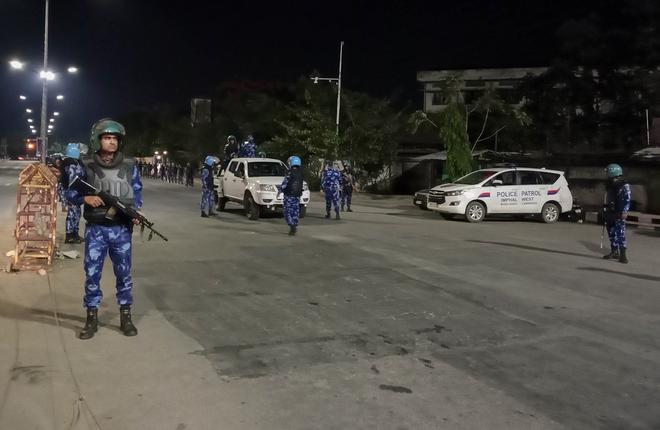The Supreme Court on May 8 called the Manipur crisis a “humanitarian problem” while noting that it is the President, and not the High Court, who has the power to designate a community as Scheduled Caste or Scheduled Tribe.
“We have made our concern explicit about the need for protection of people and property and the need for restitution and stabilisation. This is a humanitarian problem. We are concerned deeply about the loss of life and property,” Chief Justice of India D.Y. Chandrachud addressed the Centre and the Manipur government, represented by Solicitor General Tushar Mehta.
The court emphasised to the Centre and Manipur government the need to make due arrangements in relief camps to provide displaced persons with basic amenities, food and medication. Those in need of medical care should be transferred to Army or other suitable hospitals, the court said.
The Bench urged the government to ensure that “displaced people are able to go back”.
“That is the priority,” Mr. Mehta responded.
The court said the government should “take all necessary steps for rehabilitation of displaced persons and for protection of religious places of worship”.
Also Read | Explained | What is behind Manipur’s widespread unrest?
The court recorded Mr. Mehta’s submission that “appropriate steps are being taken in respect of the March 27, 2023 order of the Single Judge of the Manipur High Court before the appropriate forum”.
“You should have told the High Court about Constitution Bench judgments which had held that the High Court does not have the power. It is a Presidential power to designate a Scheduled Caste or Scheduled Tribe,” Chief Justice Chandrachud told senior advocate Sanjay Hegde, who represented the original petitioners in the case which led to the March 27 order in the Manipur High Court.
The petition filed by the Chairman of the Hill Areas Committee (HAC) of the Manipur Legislative Assembly, Dinganglung Gangmei, in the apex court had alleged that the High Court order led to the clashes in Manipur.
Senior advocate Colin Gonsalves, appearing for both Mr. Gangmei and the Manipur Tribal Forum, highlighted the need to protect the displaced.
“That is part of our job,” Mr. Mehta said.
The Solicitor General said there have been no instances of violence in the past two days. He said the court should wait till normalcy prevailed in the State.
He briefed the court that 52 companies of Central Armed Police Forces and 105 columns of the Army/Assam Rifles were deployed in the State. Flag marches were held in the disturbed areas. The State had appointed a retired police officer as its security advisor and the Centre had repatriated a senior officer to take over as the Chief Secretary of Manipur.

He said curfew had been relaxed for several hours in the past two days. Peace meetings were held and a constant vigil was on. He said helicopters and drones were patrolling the areas. Mr. Mehta informed that relief camps were opened to provide shelter, food and medication for displaced people.
“On the ground, the Army, paramilitary forces and other agencies are working. They have been successful. The situation is returning to normal… In larger interest, post this case after a week or 10 days,” Mr. Mehta submitted.
The court said it has voiced its concern but cannot go on to tell the government to “go to this area with so much equipment”.
“The government has to enforce our concern, which is the concern of every citizen. There is no reason to doubt that they are doing it,” Chief Justice Chandrachud remarked.
The Bench said it did not want the court hearings to become another instance for destabilising anything in the State.
The court directed the Centre and the State to file a status report before the next date of hearing on May 17.







